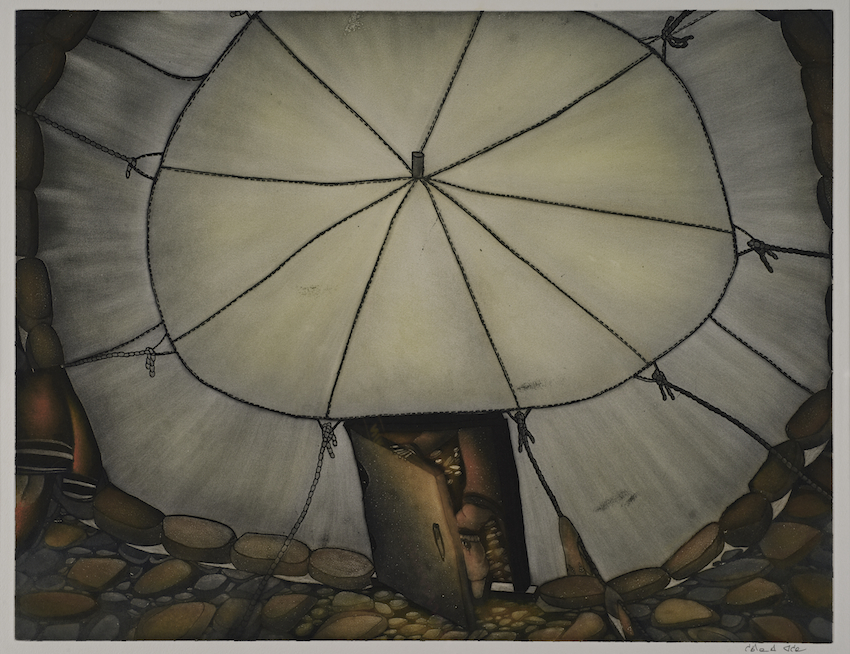
Shuvinai Ashoona (Inuit, Cape Dorset, Canada, b. 1961)
Aujaqsiut Tupiq (Summer Tent), 2009
Etching and aquatint, 38/50
31.5 x 37 inches
Reproduced with the permissions of Dorset Fine Arts
“Sometimes the pencil is stronger than I am.”
— Shuvinai Ashoona
Aujaqsiut Tupiq is both representational and abstract. The work is intentionally ambiguous because it is not clear if the viewer is looking at the tent ceiling from the inside or outside while an anonymous figure is seen either entering or leaving the tent with only an arm and a leg in the doorway. The tent glows with a warm light that suggests the activities happening within the home, but the mysterious pictorial space prevents the viewer from deducting a single understanding of the scene. Representation and abstraction coexist in Aujaqsiut Tupiq: representational in that it presents identifiable forms and abstract in the cropped view of the tent and the ambiguous use of space.
The artist continually unsettles her audience because her work’s meaning is always changing. The daughter of sculptor Kiawak Ashooona and granddaughter of esteemed artist Pitseolak Ashoona, Shuvinai Ashoona departs from traditional representations of Inuit life with her prints and drawings. Strikingly different from many of her contemporaries, Ashoona’s style can be interpreted as a reflection of her fascination with horror films, comic books, and television. Ashoona also frequently plays with perspective and unique framing devices. She presents the everyday item of a summer tent in a fantastical and ominous mode, applying her contemporary perspective and imagination to a traditional Inuit object. Ashoona is one of many younger Inuit artists that uses art to unsettle dominant narratives of a romanticized Arctic that often frame Inuit life as backwards and isolated. She does in this in Aujaqsiut Tupiq by challenging her audience, of mostly non-Native peoples, to think about accepted notions of reality and the lives of Inuit people through the representation of an object that can be continually reinterpreted.
Aaron Jones ’16 & Caroline Winkeller ’14
